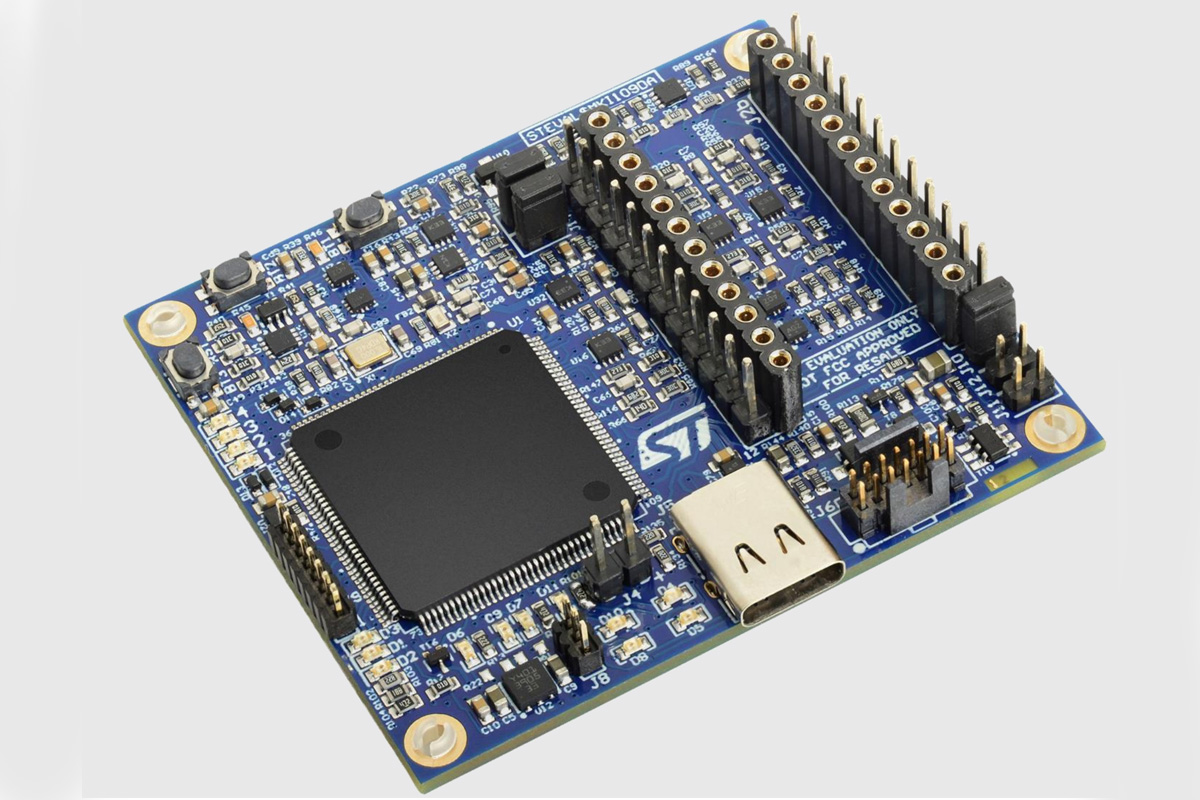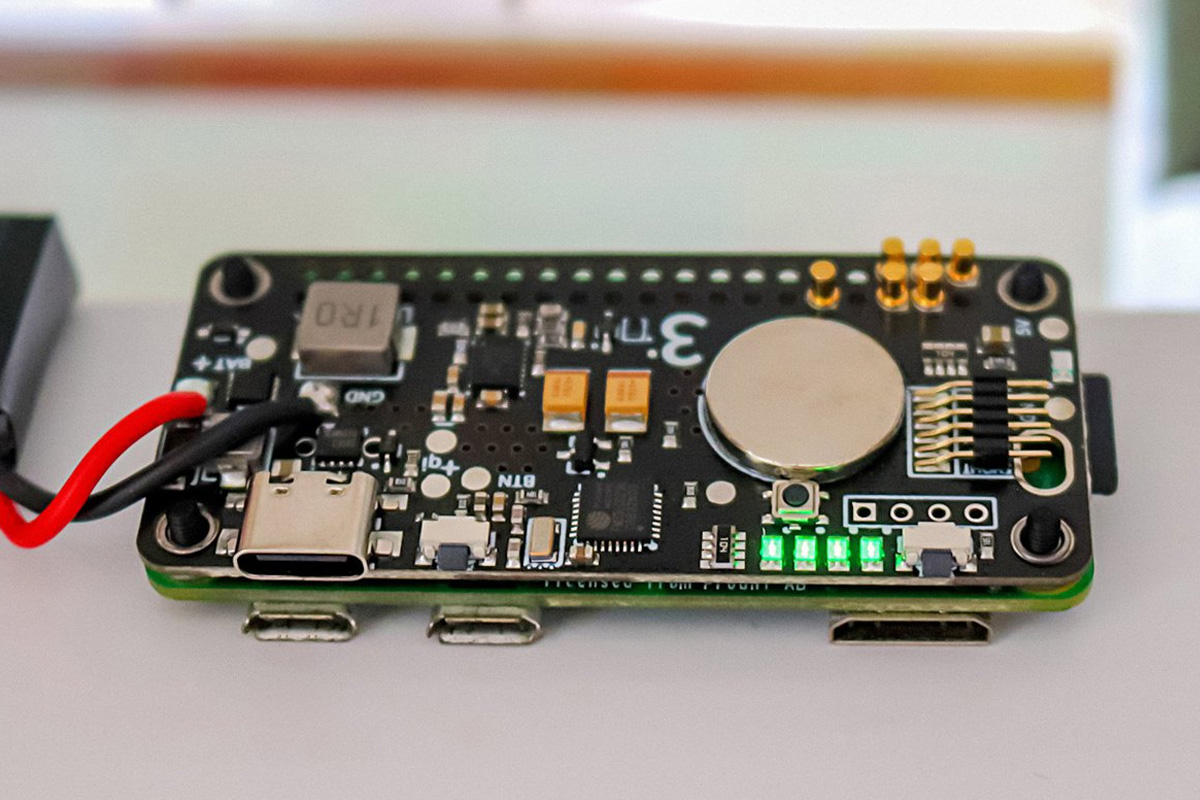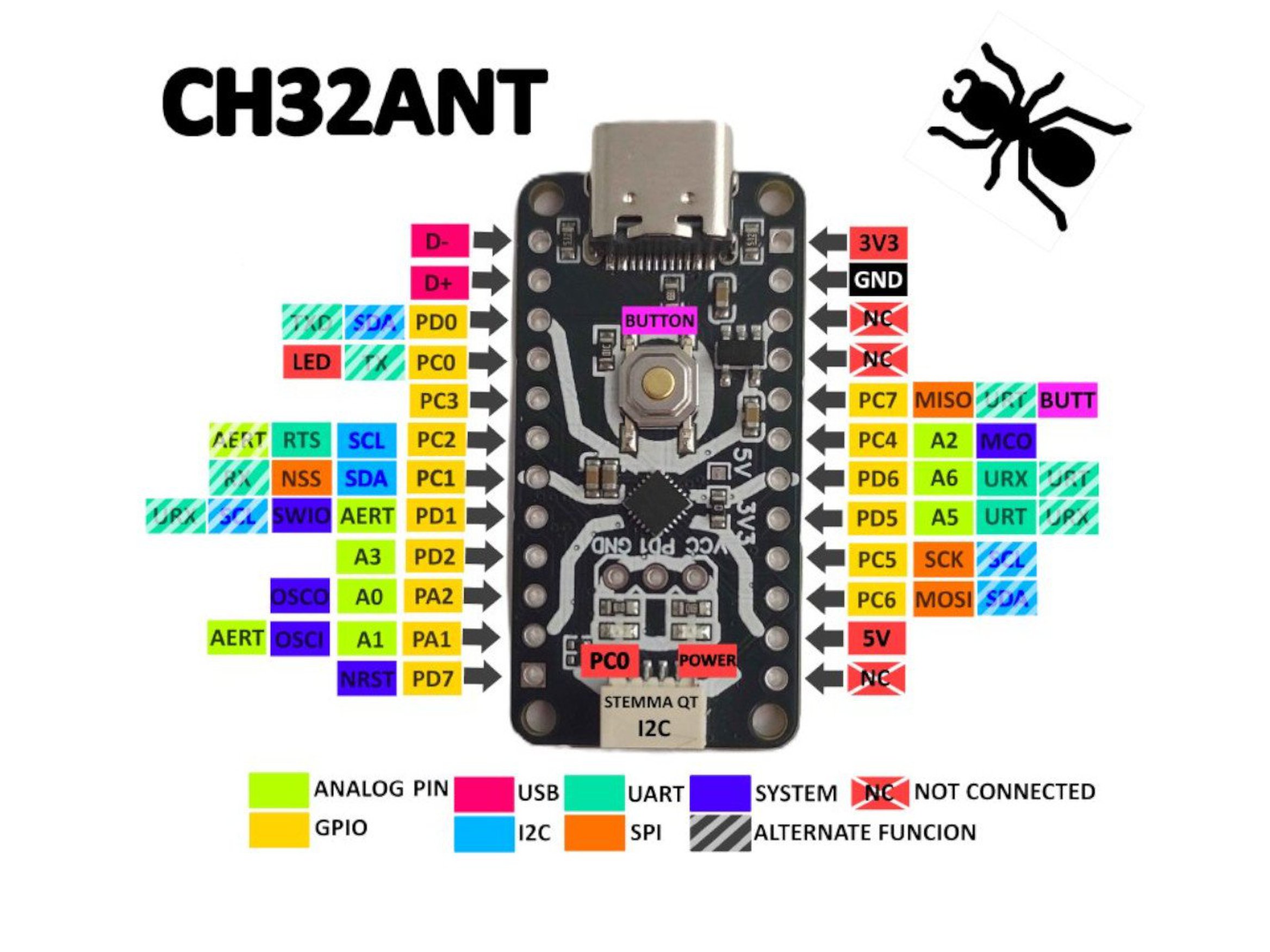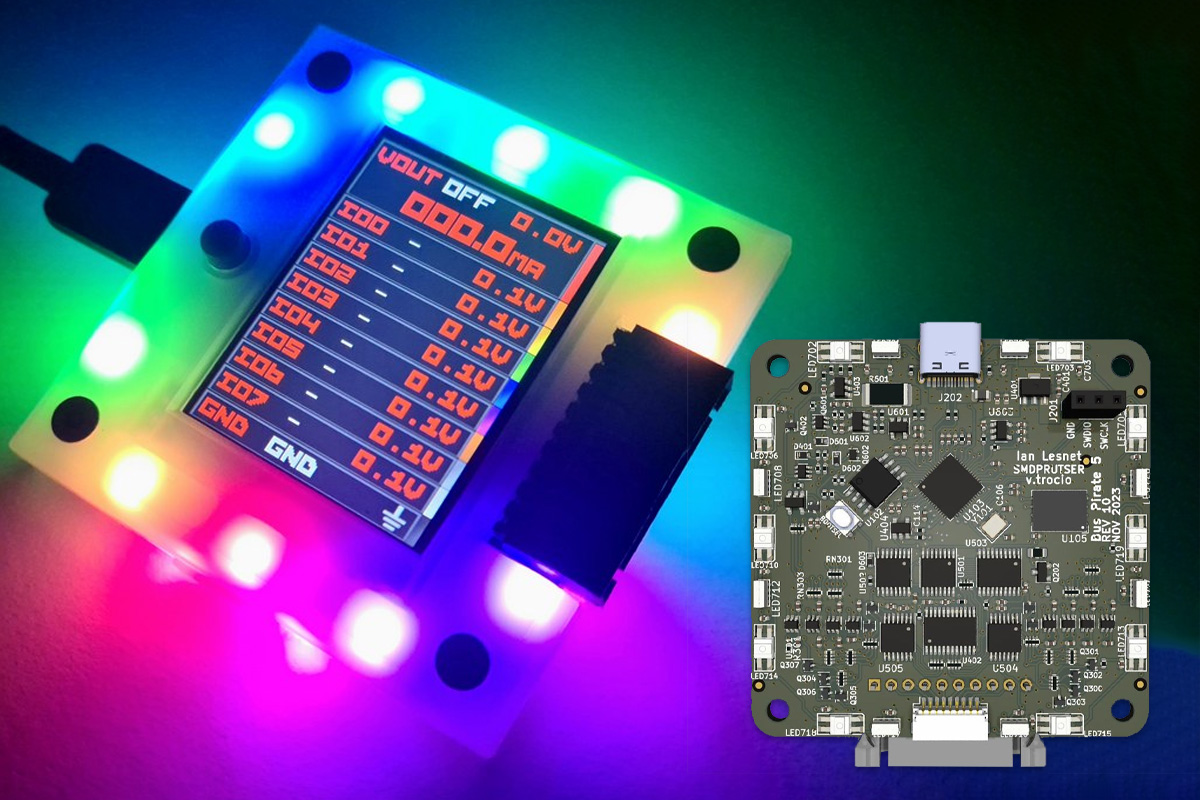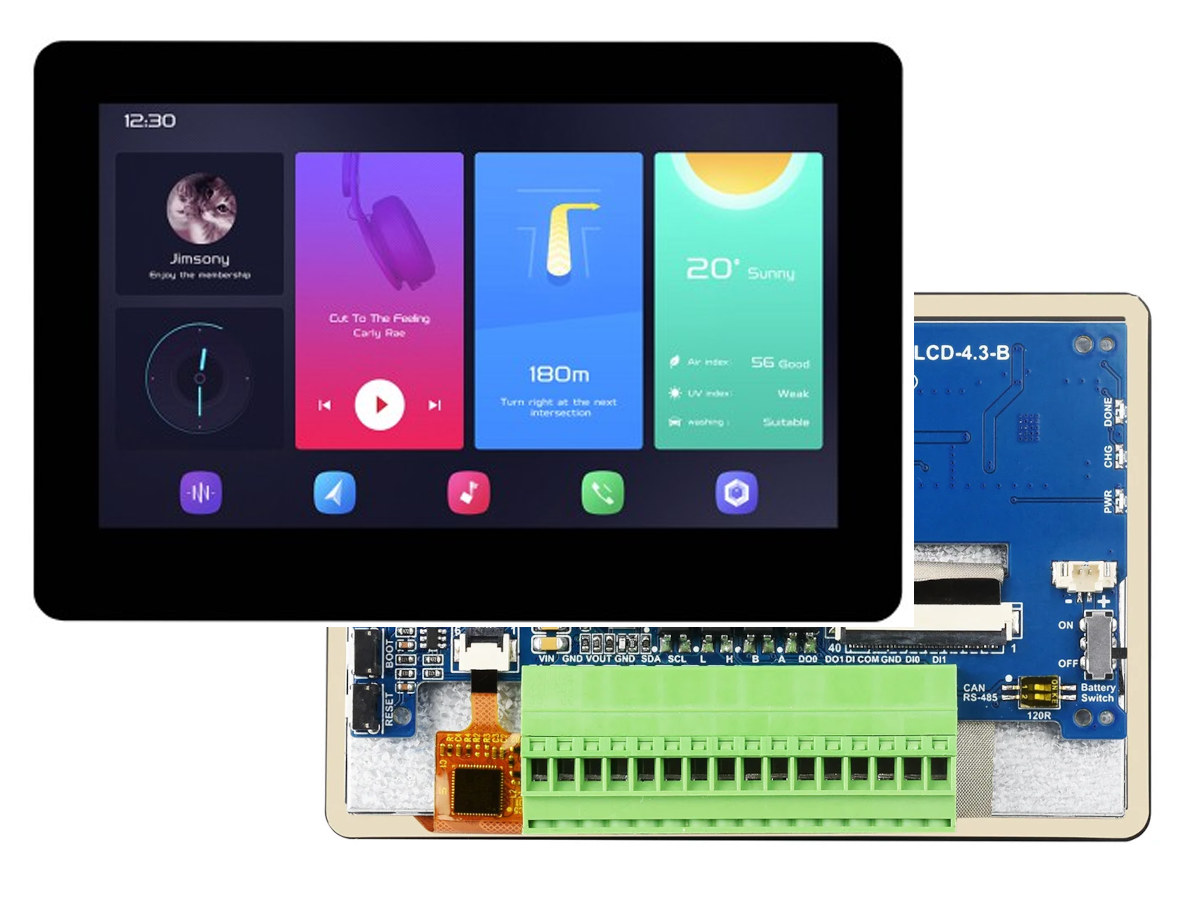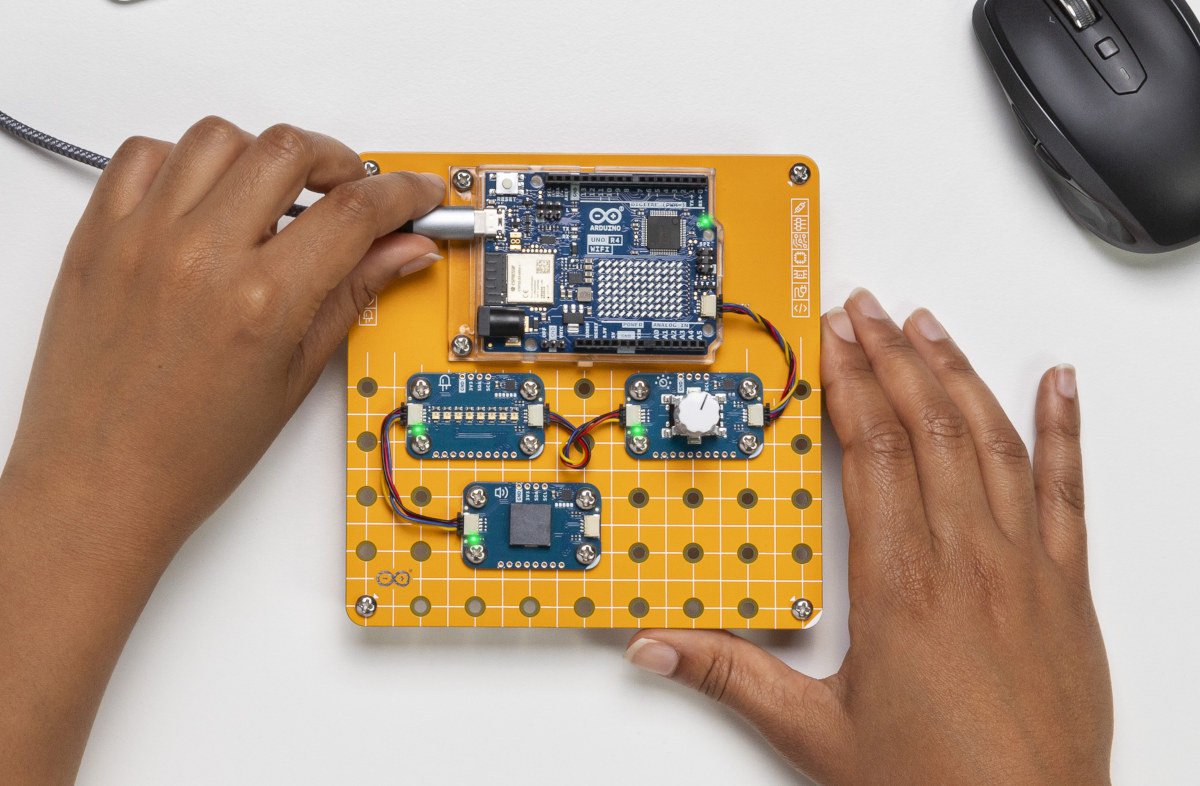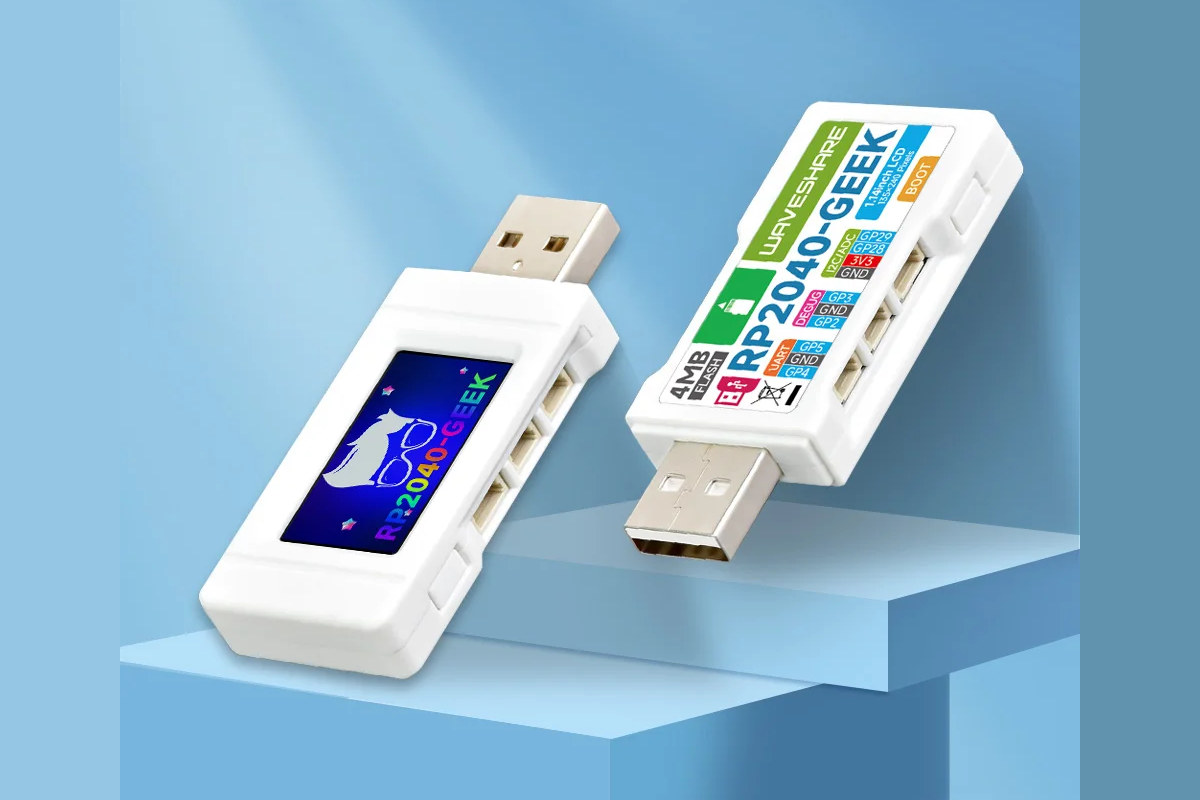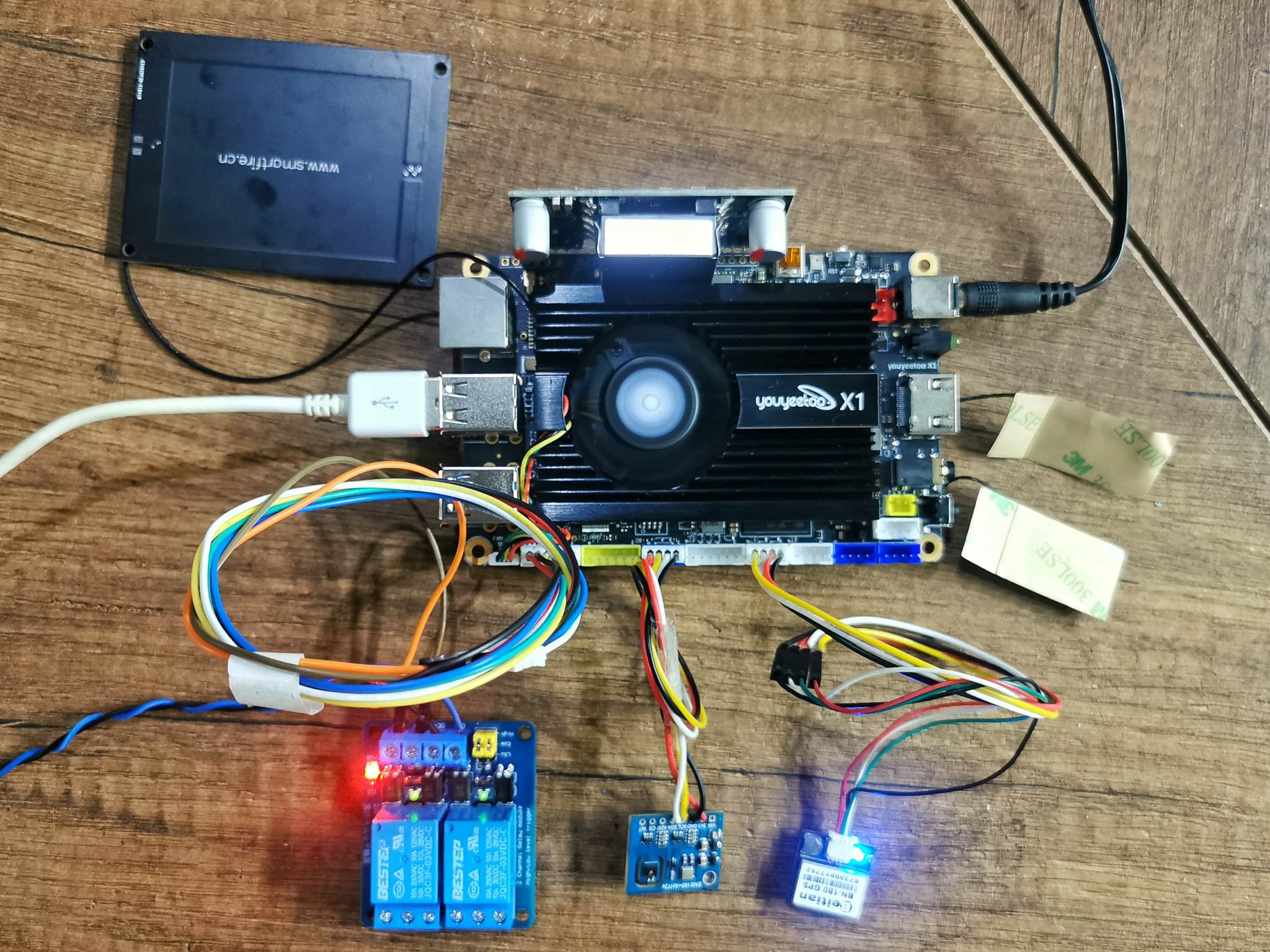STMicroelectronics has introduced the STEVAL-MKI109D a MEMS sensor evaluation board, designed to test and optimize STMicro’s MEMS sensors for various applications, including industrial automation, smart agriculture, and consumer electronics. Built around the STM32H563ZI Arm Cortex-M33 MCU this development board features I²C, I3C, and SPI interfaces, along with a TDM interface for high-speed sensor data communication. The board is also compatible with STMicro MEMS DIL24 adapter boards, which makes it easy for engineers to test different sensors. Additionally, it has software-adjustable power circuitry (0–3.6V), and onboard power monitoring for accurate analysis of sensor performance. STEVAL-MKI109D specifications Main MCU – STMicro STM32H563ZI Arm Cortex-M33 MCU with DSP and FPU Storage – MicroSD card slot Sensors – Supports all STMicro MEMS DIL24 compatible adapter boards Interfaces – I²C, I3C, SPI, TDM USB – USB Type-C connector for power and programming Misc Onboard J6 connector for STM32 programming and debugging Onboard J9 connector for […]
PiSugar3 is a low-cost Raspberry Pi UPS module with RTC, hardware battery protection, and power management features
PiSugar Kitchen’s PiSugar3 is a compact Raspberry Pi UPS module with integrated power management features that make Raspberry Pi Zero boards portable. This new module is an upgraded version of the PiSugar S and PiSugar S Pro, which we previously wrote about. The PiSugar S features a compact 1,200mAh battery for Raspberry Pi Zero, and the PiSugar S Pro comes with a 5,000mAh battery for Raspberry Pi 3/4. The PiSugar3 adds new features to these models with upgrades including an RTC, and a fully functional UPS functionality with customizable wake-up options. It also includes an anti-mistaken touch switch to avoid accidental shutdowns, a software watchdog, and hardware battery protection to extend battery longevity. The UPS module gets attached to the bottom of the Pi and there are pogo pins on the UPS module that deliver the power while the GPIO pins of the Pi remain free for other tasks, on top […]
$5 CH32-Ant CH32V003 RISC-V development board comes with Stemma QT connector
The CH32-Ant is a low-cost, breadboard-compatible development board powered by the WCH Electronics CH32V003-F4U6 RISC-V microcontroller, ideal for prototyping. It is pin-compatible with Prokyber’s ESP32-C6-Bug, offering an easy transition for users who don’t need wireless capabilities or the higher performance of the ESP32-C6FH4. The board features a Stemma QT connector for straightforward I2C sensor integration and a USB Type-C port that supports data transfer and power through software-based USB on the CH32V003. The CH32-Ant offers configurable logic voltage at 3.3V or 5V, adjusted via an onboard 0-ohm resistor, providing flexibility for sensor projects. Powered by the CH32V003F4U6 microcontroller, it operates up to 48MHz with 2kB of RAM and 16kB of flash, making it cost-effective for applications requiring basic processing without wireless. The CH32-Ant features a compact layout designed for breadboard compatibility, a Stemma QT connector for an I2C module on one end of the board, and a USB Type-C connector […]
Bus Pirate 5XL and 6 hardware debugging tools utilize Raspberry Pi RP2350A and RP2350B microcontrollers
The Bus Pirate 5XL and 6 are open-source hardware debugging tools respectively based on Raspberry Pi RP2350A and RP2350B and designed to simplify interaction with various bus protocols like 1-Wire, I2C, SPI, UART, several LEDs, and more. The idea is to send commands to a chip or sensor and get the response, without writing a single line of code making it ideal for hardware hacking and tinkering. The devices feature buffered I/O pins with voltage and current measurement, a programmable power supply with current limiting, an RGB LCD for pin status and info, and an auxiliary header for connecting logic analyzers. All these features make this device useful for applications like debugging circuits, prototyping projects, and reverse engineering devices. The new devices are updates to the Bus Pirate 5 based on Raspberry Pi RP2040 MCU. You’ll find Bus Pirate specifications for the three models in the table below. The original […]
4.3-inch ESP32-S3 wireless touchscreen display features terminal block with RS485, CAN Bus, I2C, DIO
Waveshare “ESP32-S3-Touch-LCD-4.3B” is a capacitive touch display development board built around an ESP32-S3 SoC with RS485, CAN Bus, I2C, and isolated DIO interfaces provided through a terminal block. The devkit features a 4.3-inch capacitive touch display that has an 800×480 resolution, RTC, and a microSD card slot. Combined with a wide input voltage range of 7-36V DC, the ESP32-S3-Touch-LCD-4.3V is suitable for IoT HMI, smart home automation, and more. Previously we have written about similar development boards from Waveshare like the ESP32-S3 1.69-inch touch display, the $15 Waveshare 1.69-inch IPS touch LCD module, the Waveshare RP2040-LCD-0.99-B rounded display but they would offer no expansion pins or GPIO through pads or 4-pin connectors, while the ESP32-S3 display features a terminal block with additional interfaces like RS485 pr CAN Bus that should make wiring more convenient and versatile for the target applications. Waveshare ESP32-S3 touch LCD specifications: Wireless MCU – Espressif Systems ESP32-S3R8 […]
Beginner friendly Arduino Plug and Make Kit features Arduino UNO R4 WiFi and Modulino I2C modules
Arduino has just launched a “Plug and Make” kit designed for beginners with an Arduino UNO R4 WiFi board, several “Modulino” modules, a “Modulino” base to neatly attach the UNO R4 and modules, and various cables, spacers, screws, and nuts. When thinking about Arduino projects, breadboards or even soldering may come to mind, but the new Arduino Plug and Make Kit does not require any of those. No breadboard, jumper wires, or soldering needed. Users can simply connect the modules to the Arduino board through Qwiic cables, neatly attach everything together on the provided base, and follow one of the seven projects complete with step-by-step instructions provided with the kit. The Arduino Plug and Make Kit content Arduino UNO R4 WiFi board 7x Modulino I2C nodes Modulino Knob* – Encoder for value adjustments Modulino Pixels* – 8x LC8822-2020 RGB LEDs Modulino Distance – STMicro VL53L4 Time-of-Flight (ToF) proximity sensor to […]
Waveshare RP2040-GEEK USB development board features RP2040 MCU, 1.14-inch color display, UART/I2C/SWD ports
Waveshare RP2040-GEEK is a development board that looks like a USB flash drive but is based on a Raspberry Pi RP2040 microcontroller with a 1.14-inch 65K color LCD and some expansion ports all housed in a white plastic case. The device comes with a 4MB flash to store the firmware, a microSD card slot for data storage, a BOOT button to enter bootloader mode, two 3-pin connectors for UART and SWD debug, and a 4-pin I2C port. Waveshare RP2040-GEEK specifications: MCU – Raspberry Pi RP2040 dual-core Arm Cortex-M0+ microcontroller clocked up to 133 MHz with 264 kB SRAM Storage – 4MB flash (W25Q32JVSSIQ) and microSD card slot Display – 1.14-inch 240×135 pixel 65K color IPS LCD display USB – 1x USB Type-A female port for power and programming Debugging – 3-pin SWD port for connecting a target board; the standard CMSIS-DAP interface can be used to debug most Arm-based microcontrollers; […]
Youyeetoo X1 x86 SBC Review – Part 2: GPIO, UART, I2C, SPI, NFC, PoE module, and power consumption
The Youyeetoo X1 x86 single board computer (SBC) with an Intel Celeron N5105 Jasper Lake CPU differs from a typical Intel or AMD mini PC by its range of IOs including SPI, I2C, UART, NFC connectivity, and support for PoE module that you won’t find in a typical computer, and that’s what we will test in the second part of the X1 SBC review along with power consumption. The Youyeetoo X1 SBC is also different from Arm-based single board computers since we can just install any x86-compatible operating system by ourselves, and w don’t need to flash a board-specific image like we would do with Arm SBCs and peripherals such as SPI, I2C or UART may be or may not usable immediately due to lack of supported drivers. We’ve already installed Ubuntu 22.04 on the Youyeetoo X1 in the first part of the review, so in the second part, we’ll […]


